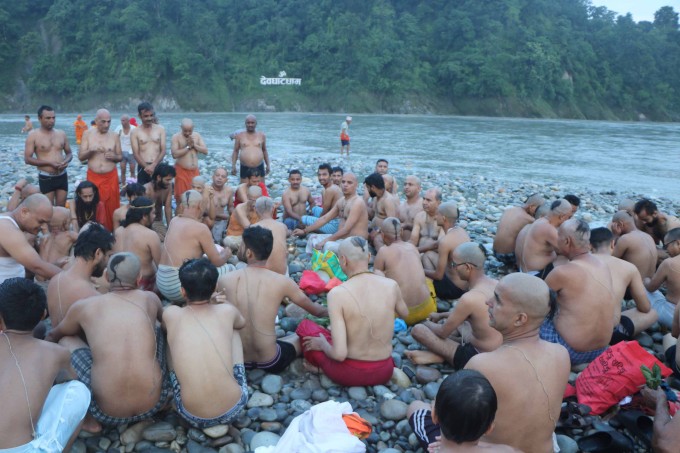The return of dragons on the small screen has been a huge hit. Now it’s time for the return of the elves and dwarves.
Amazon Studios is launching “The Lord of the Rings: The Rings of Power,” an ambitious, years-in-the-making and very expensive salvo that will go head-to-head with another costly streaming fantasy epic: HBO’s “Game of Thrones” spinoff “House of the Dragon,” which recently became the most-watched series premiere in HBO history.
The series is based on J.R.R. Tolkien’s writings and asides about Middle-earth’s Second Age, which preceded the Third Age’s “Lord of the Rings” and “Hobbit” films and books. Tolkien’s grandson, Simon Tolkien, was a creative consultant.
Amazon Prime Video will debut both the first two “The Rings of Power” episodes on Friday. After that, the remaining six episodes arrive weekly on Friday.
The hour-long episodes are stuffed with action and humor but buckle up: Payne and his co-showrunner Patrick McKay plan to use a 50-hour canvas to explore their nuanced characters and complex histories. These first eight episodes are like an appetizer.
Early ones shift across the various regions of Middle-earth, our planet’s imagined mythological past. Here, some 4,000 years before “The Hobbit,” are elves involved with royal intrigue, dwarves who mine inside mountains, hobbitlike harfoots who are pastoral, humans who seem unusually prone to violence, and evil orcs.
Despite being set centuries before the books and films that make up the Tolkien’s canon, fans of “The Lord of the Rings” will notice some familiar characters, based on the long lifespan of some of the creatures, including Galadriel, Elrond and Isildur. Sauron, the evil force, is unseen in the first two episodes but a malevolent presence throughout.
Morfydd Clark grew up in Wales to parents who adored Tolkien’s epic book series and her dad read her “The Hobbit” when she was 9. The films came out when she was 11, accelerating the obsession. Now she finds herself playing a young Galadriel, a powerful elf played later in the films by Cate Blanchett.
That sense of hope is something that distinguishes the series from “House of the Dragon,” which revels in a cynical, bloody view of mankind. McKay notes that Tolkien emerged from World War I with a complex fairy story, unlike many of his literary peers who were writing about wastelands and darkness.
The show’s tone shifts depending on which place is being visited. Harfoots, who have Irish accents, are whimsical, communal and clever, while dwarves have Scottish accents, are fond of a drink and are a little rough. Elves are elegant and elite, with upper English class accents and a fondness for billowing cloaks and long, elaborate ceremonies.
The cast — a massive ensemble of 22 actors — is multiethnic and composed of actors of different ages and fame, from Tony-nominated Benjamin Walker to up-and-coming Charlie Vickers, who graduated from drama school in 2017.
The cast filmed in New Zealand during the pandemic and were away from loved ones for almost two years. The actors rarely visited the sets of rival fictional races, but all gathered for potluck lunches and holidays, often at Walker’s house where a mean fried chicken was served. “I got a bunch of babysitters out of it,” he joked.
The production — rated TV-14 for violence versus the “Game of Thrones” prequel which is TV-MA for violence, language, and nudity — is one of the most expensive in history, with Amazon spending at least $465 million on the first season in New Zealand, where the series employed 1,200 people directly and another 700 indirectly. In total, the season has reportedly cost $1 billion.
The new series debuts in the long shadow left by Peter Jackson, whose film trilogy adaptation of Tolkien’s books won critical and commercial praise in the early 2000s and claimed the best picture Oscar for “Return of the King.” For the series, there was more freedom to create as long as it was true to the author.
The series will have to thread a careful needle by enchanting hard-core fans of Tolkien who will be searching for connections to the universe, attracting those who have hazy memories of the books and don’t want to be burdened with tons of new material, and young people whose perhaps last epic adventure series was “Harry Potter.”
“It’s kind of the gateway for new fans in that it’s kind of the first chapter, the adolescence of Middle-earth, where the films you could imagine are the adulthood of Middle-earth,” said Walker. “So we’re seeing all these characters we know and love — and some that we’re being introduced to — take the first steps on their journey in becoming their destined selves.”
READ ALSO:







